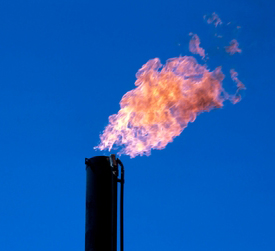Global Scans · Decarbonization · Weekly Summary

- The energy transition needed to reach net zero emissions will create about 30 million new jobs related to clean energy technologies by 2030, many of which require additional skills and training. IEA
- Planet-heating emissions, mainlyfrom the burning of fossil fuels, have continued to rise in recent years, when scientists say they need to fall by almost half this decade and the UN's IPCC climate panel has warned that the world will likely crash through 1.5 C in the early 2030s. Dawn Epaper
- SAF can produce up to 80% fewer CO 2 emissions over its lifecycle than traditional jet fuel, and the International Air Transport Association (IATA) estimates that SAF will contribute around 65% of the reductions in emissions needed for the aviation sector to reach net zero in 2050. Hydrocarbon Engineering
- The launch of ComEd's new EV rebates will make a big difference in helping low-income and environmental justice communities play a direct role in reducing greenhouse gas emissions. Yahoo Finance
- The world must nearly halve its greenhouse gas emissions this decade and reach zero net emissions by 2050 to keep global warming from spiraling to catastrophic levels. CNN
- Concerning urban air quality improvement, in the base scenario, Sao Paulo the city will reduce about 131 tons of black carbon, 7.736 tons of NOx and 2.901 tons of particulate matter up to 2050. Transformative Urban Mobility Initiative
- The transition towards e-buses is expected to save Mumbai a significant amount of black carbon, with an estimated 22 tons in 2030 and 40 tons by 2050 in the base scenario. Transformative Urban Mobility Initiative
- If the substantial technical obstacles can be overcome then fusion could solve much of the world's energy woes, as it generates a huge amount of energy for very little fuel, requires no exploitation of finite natural resources and produces no greenhouse gas emissions. The Telegraph
- The targets for manufacturers will increase each year, requiring 80% of new cars and 70% of new vans sold in Great Britain to be zero emission by 2030, increasing to 100% by 2035. CV Show News
- The world could sustainably remove, at most, 2.9 billion metric tons of carbon dioxide annually by capturing emissions from burning crops and 3.8 billion tons annually from growing forest. Yale E360
- How water scarcity poses comparatively much greatest risks to employment in low-income countries, where 80% of jobs are water dependent (compared to only 50% in hi-income countries). United Nations
- The EU could increase fairness further by increasing the ambition of its fit for 55% pledge, a target to reduce emissions by at least 55% by 2030. Carbon Brief
- Increasing carbon removals from land-based and industrial sources would bring net emissions down further (dashed black line) and enable net-zero emissions to be reached in 2050, despite ongoing residual emissions in some sectors - notably agriculture. Carbon Brief
- Simplified, relying on the preferred trajectory as a basis, in 2040, the energy sector will emit virtually nothing (electricity and heat generation, fuel production, etc.), while emissions from energy use in industry, buildings and transport will each decrease by about 85% compared to 2015. EnergyVille
- Biofuels are expected to play a crucial role in India's decarbonization efforts, with the country advancing its ethanol blending targets to accelerate the adoption of renewable fuels. ThePrint
- From a low base, US production was expected to lift 280 times, with Europe to rise 120 times in the coming years, with more additional LFP supply expected out of Korea. NT News
- Long Beach's Public Works Department has established plans to drive 800 tons of residential waste - which would have otherwise been processed into energy at SERRF - to landfills instead, which is expected to increase greenhouse gas emissions by 4%. Press Telegram
- MethaneSAT will shine a bright light onto the sources of methane production, providing the public with unimpeachable scientific data about the true extent of methane emissions around the world. Ball
- As India sets ambitious goals to reduce its carbon emissions by 50% by 2030 and to be net zero by 2070, the concept of symbiotic sustainability emerges as a critical guiding principle for businesses. Times of India
- A demand to reduce nitrogen, methane and other emissions linked to farming by almost a third has been removed from a wider Brussels plan to cut greenhouse gas emissions by 90% by 2040. Yahoo News
- The 27-nation European Union has pledged to be carbon neutral by 2050, and set a first interim target for 2030: to cut greenhouse gas emissions by 55% compared with 1990 levels. www.euractiv.com
- The viability gap funding will be provided for harnessing offshore wind energy capacity of 1 GW for achieving net-zero emissions by 2070. Deccan Herald
- 26 Georgian cities and municipalities have joined the Covenant of Mayors initiative to reduce GHG emissions to 20% below the 1990 level by 2020 and to 40% below by 2030. IEA
Last updated: 11 February 2024
